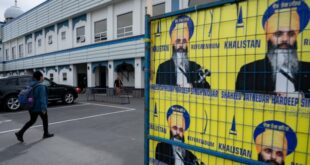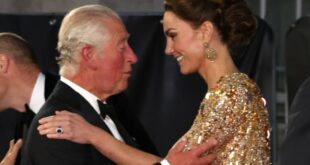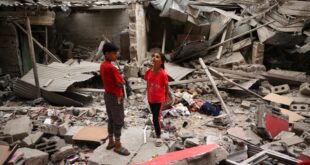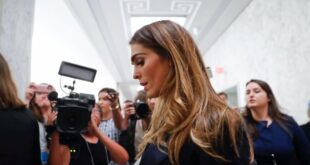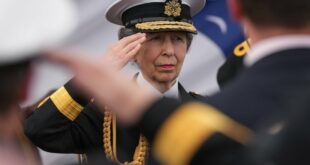Berlusconi's death comes after he was hospitalized on Friday

Silvio Berlusconi remembered for sex scandals, corruption and charisma
Former Italian prime minister Silvio Berlusconi, who began as a nightclub singer and made billions in the construction and media industries, died Monday at 86. He was being remembered for numerous sex scandals, allegations of corruption and his charismatic ability to wield power.
Silvio Berlusconi, the boastful billionaire media mogul who was Italy's longest-serving prime minister despite scandals over his sex-fuelled parties and allegations of corruption, has died, according to his television network Mediaset. He was 86.
Mediaset announced his death with a smiling photo of the man on its homepage and the headline: "Berlusconi is dead." Italian news agency LaPresse reported Berlusconi's death after he was hospitalized on Friday for the second time in months for treatment of chronic leukemia.
He also suffered over the years from heart ailments, prostate cancer and was hospitalized for COVID-19 in 2020.
A one-time cruise ship crooner, Berlusconi used his television networks and immense wealth to launch his long political career, inspiring both loyalty and loathing.
Berlusconi was prime minister for just over eight months beginning in 1994 and then from 2001-2006 and 2008-2011. His Forza Italia political party was a coalition partner under the current prime minister, Giorgia Meloni.

Death of ex-prime minister draws mixed reactions from Italians
A small tribute of flowers and other mementoes was laid down by mourners outside the residence of former Italian prime minister Silvio Berlusconi, though reactions from various residents of Italy were mixed toward the legacy he leaves behind.
Meloni remembered Berlusconi "above all as a fighter."
"He was a man who had never been afraid to defend his beliefs. And it was exactly that courage and determination that made him one of the most influential men in the history of Italy," Meloni said on Monday.
'Many loved him, many hated him'
To admirers, the three-time prime minister was a capable and charismatic statesman who sought to elevate Italy on the world stage. To critics, he was a populist who threatened to undermine democracy by wielding political power as a tool to enrich himself and his businesses.
Former prime minister Matteo Renzi, a political rival, recognized Berlusconi's divisive legacy in a message on Twitter.
"Silvio Berlusconi made history in this country. Many loved him, many hated him. All must recognize that his impact on political life, but also economic, sport and television, has been without precedence."
.jpg?crop=1.777xh:h;*,*&downsize=510px:*510w)
Hear what it was like to interview Silvio Berlusconi
Alan Friedman, author of a book on Silvio Berlusconi, talks about interviewing the former Italian prime minister while he was completing community service for tax fraud.
When former U.S. president Donald Trump launched his political career, many drew comparisons to Berlusconi, noting they both had long business careers and were sports team owners before entering politics. Each sought to upend the existing order, and grabbed attention for their over-the-top personalities and lavish lifestyles.
For many years, Berlusconi seemed untouchable despite numerous scandals. Criminal cases were launched but ended in dismissals when statutes of limitations ran out in Italy's slow-moving justice system, or he was victorious on appeal.
Investigations targeted the tycoon's steamy so-called "bunga bunga" parties involving young women and minors, or his businesses, which included the soccer team AC Milan, the country's three biggest private TV networks, magazines and a daily newspaper, and advertising and film companies.
Only one led to a conviction — a tax fraud case stemming from a sale of movie rights in his business empire. The conviction was upheld in 2013 by Italy's top criminal court, but he was spared prison because of his age, 76, and was ordered to do community service by assisting Alzheimer's patients.

He still was stripped of his Senate seat and banned from running or holding public office for six years, under anti-corruption laws.
He eventually held office again — elected to the European Parliament at age 82 and then last year to the Italian Senate. Berlusconi's party was eclipsed as the dominant force on Italy's political right: first by the League, led by anti-migrant populist Matteo Salvini, then by Meloni's Brothers of Italy party, with its roots in neo-fascism.
He suffered personal humiliations as well. Berlusconi lost his standing as Italy's richest man, although his sprawling media holdings and luxury real estate still left him a billionaire several times over.

In 2013, guests at one of his parties included an under-age Moroccan dancer, Karima El Mahroug, whom prosecutors alleged had sex with Berlusconi in exchange for cash and jewelry.
After a trial spiced by lurid details, a Milan court initially convicted Berlusconi of paying for sex with a minor and using his office to try to cover it up. Both denied having sex with each other, and he was eventually acquitted.
The Catholic Church, at times sympathetic to his conservative politics, was scandalized by his antics, and his wife of nearly 20 years divorced him, but Berlusconi was unapologetic, declaring: "I'm no saint."
Controversy usually not far
Berlusconi insisted that voters were impressed by his brashness.
"The majority of Italians in their hearts would like to be like me and see themselves in me and in how I behave," he said in 2009, during his third and final stint as prime minister.
From the start of his political career in 1994, he portrayed himself as the target of a judiciary he described as full of leftist sympathizers. He always proclaimed his innocence.

He delighted in flouting political etiquette. He posed for photos at international summits making an Italian gesture — which can be offensive or superstitious, depending on circumstances — in which the index and pinkie fingers are extended like horns.
He stirred anger after the Sept. 11, 2001, terrorist attacks in the United States by claiming Western civilization was superior to Islam.
When criticized in 2003 at the European Parliament by a German lawmaker, Berlusconi likened his adversary to a concentration camp guard. Years later, he drew outrage when he compared his family's legal woes to what Jews must have encountered in Nazi Germany.
Construction magnate, media owner
Berlusconi was born in Milan on Sept. 29, 1936, the son of a middle-class banker. He earned a law degree, writing his thesis on advertising.
He started a construction company at 25 and built apartment complexes for middle-class families on Milan's outskirts, part of a postwar boom.
Pictures that defined an era 🏆<br>History was made 📚 <br> <br>Le foto che hanno fatto la Storia <a href="https://t.co/Anyko5AXh8">pic.twitter.com/Anyko5AXh8</a>
—@acmilan
But his astronomical wealth came from the media. In the late 1970s and 1980s, he circumvented Italy's state TV monopoly RAI by creating a de facto network in which local stations all showed the same programming. RAI and his Mediaset network accounted for about 90 per cent of the national market in 2006.
When the "Clean Hands" corruption scandals of the 1990s decimated the political establishment that had dominated postwar Italy, Berlusconi filled the void, founding Forza Italia in 1994.
His first government in 1994 collapsed after eight months when an ally who led an anti-immigrant party yanked support. But aided by an aggressive campaign that included mass mailings of glossy magazines recounting his success story, Berlusconi swept to victory in 2001.
He then set a record for government longevity in Italy but it wasn't easy. A G8 summit he hosted in Genoa in 2001 was marred by violent anti-globalization demonstrations and the death of a protester shot by a police officer.
Berlusconi faced fierce domestic opposition and alienated some allies by sending 3,000 troops to Iraq after the ouster of Saddam Hussein in 2003. For a time, Italy was the third-largest contingent in the U.S. coalition.
At home, he constantly faced accusations of sponsoring laws aimed at protecting himself or his businesses, but he insisted he always acted in the interest of all Italians. Legislation passed when he was premier allowing officeholders to own media businesses but not run them was deemed by his critics to be tailor made for Berlusconi.
Final term as PM ended in 2011
He also was chummy with Russian President Vladimir Putin, who stayed at his Sardinian estate, and he visited the Russian leader, notably going to Crimea after Moscow illegally annexed the peninsula in 2014.
His friendship with Putin — who sent a telegram of condolence, hailing Berlusconi as a "patriarch" of Italian politics and a friend — put him at odds with Meloni, particularly after Russia invaded Ukraine. On his 86th birthday, while the war raged, Putin sent Berlusconi best wishes and vodka, and the Italian boasted he returned the favour by sending back Italian wine.
An admirer of U.S. President Ronald Reagan and British Prime Minister Margaret Thatcher, Berlusconi passed reforms that partially liberalized the labour and pension systems, among Europe's most inflexible.

In 2006, as Italy was ridiculed as "the sick man of Europe," with its economy mired in zero growth and its budget deficit rising, Berlusconi narrowly lost the general election to centre-left leader Romano Prodi.
In 2008, he bounced back for what would be his final term as prime minister. It ended abruptly in 2011, when financial markets lost faith in his ability to keep Italy from succumbing to the eurozone's sovereign debt crisis. To the relief of economic powerhouse Germany, Berlusconi reluctantly stepped down.
Berlusconi was first married in 1965 to Carla Dall'Oglio, and their two children, Marina and Piersilvio, were groomed to hold top positions in his business empire. He married his second wife, Veronica Lario, in 1990, and they had three children, Barbara, Eleonora and Luigi.
*****
Credit belongs to : www.cbc.ca
 MaharlikaNews | Canada Leading Online Filipino Newspaper Portal The No. 1 most engaged information website for Filipino – Canadian in Canada. MaharlikaNews.com received almost a quarter a million visitors in 2020.
MaharlikaNews | Canada Leading Online Filipino Newspaper Portal The No. 1 most engaged information website for Filipino – Canadian in Canada. MaharlikaNews.com received almost a quarter a million visitors in 2020.

